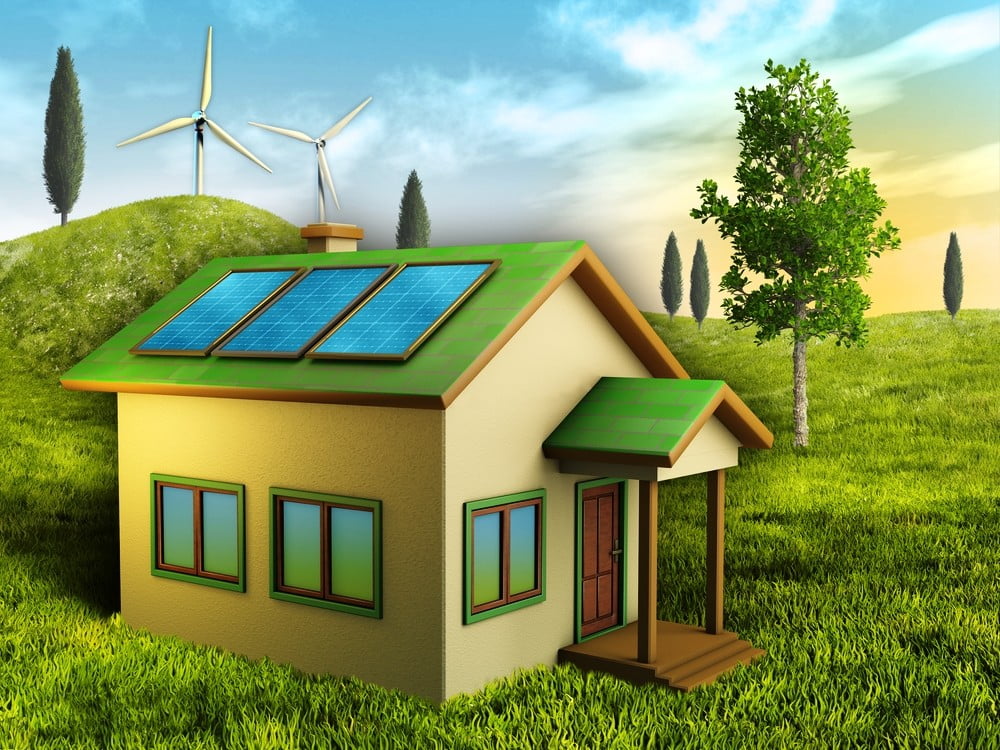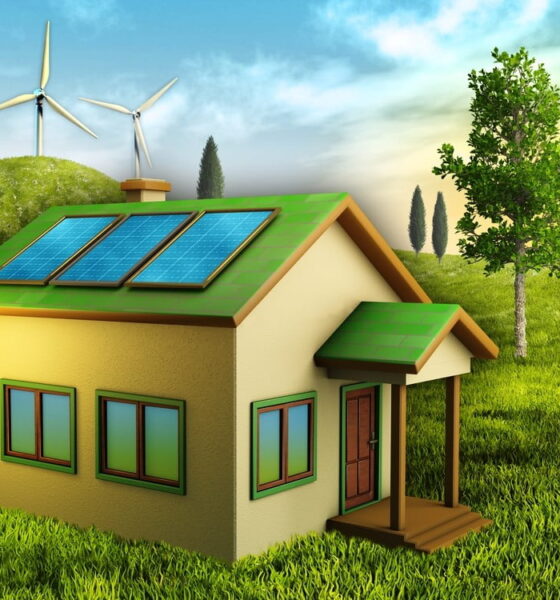

Editors Choice
Household Energy Independence is the First Step to Sustainable Living
Are you serious about following a sustainable lifestyle? You need to focus on making the changes that make the biggest differences. Creating an eco-friendly home is the most important thing you can do.
The National Association of Realtors points out that your house uses up 50% more energy than your car. So, if you are buying a hybrid and monitoring your travel efficiency but not focusing on the sustainability of your home, then you won’t be doing enough to lower your carbon footprint.
An energy efficient house can save 40% in energy and sometimes more. Many of the improvements we can make are very easy and affordable. We have reviewed a list of tips from the Institute for Energy Diversification and Saving (IDAE) in Spain. They say it is possible to build homes with the highest energy rating if you make the right improvements.
Taking the Right Steps to Household Energy Independence
Energy independence should be a number one priority for any homeowner. Here are some steps that will help you achieve this goal.
Insulation
It is a good idea to install double glazed windows or double window and wall fixtures with a thermal break. Also, the boxes of the blinds must be fully insulated. Closing blinds and curtains at night avoids unnecessary heat loss.
Detect air currents
Fixing airflow problems can reduce energy loss by 15%. Air currents can be identified by placing a candle in areas where they are suspected. If the flame oscillates, an air leak will have been detected. Some of them can be covered with simple and cheap means such as silicone, putty or a weather seal.
Get a smaller generator
Investing in a generator can be a good way to be more energy independent. A smaller one will also use less energy.
Protection in windows and doors
Window carpentry should insulate both heat and cold. Special plastic adhesive films can be used to help reduce heat loss (if placed indoors) or gain (if placed outdoors).
Save on hot water and energy
Systems with hot water accumulation are more efficient than those with instantaneous production and without accumulation. It is important that accumulators and hot water distribution pipes are well insulated.
Taps and pushbuttons
In bathrooms and kitchens, it is preferable to replace the separate hot and cold water taps with a mixer. In the bathroom, the double push-button or partial flush systems in the cisterns save a large amount of water.
Heating maintenance
The air inside the radiators makes it difficult to transmit heat from the hot water to the outside, so it is advisable to bleed this air at least once a year. The best time is at the beginning of the heating season. Radiators should also not be covered, as this makes it difficult to diffuse hot air. You don’t have to wait for the equipment to break down. Doing an adequate maintenance of the individual boiler can save 15% of energy.
Lighting
Whenever possible, natural lighting should be used. Light colors on walls and ceilings absorb natural light better.
Artificial light
Replacing incandescent bulbs with energy-saving lamps saves up to 80% energy and lasts 8 times longer. Electronic lamps last longer than conventional energy-saving lamps and withstand a greater number of on and off. And in areas where light is needed for many hours, such as kitchens, it is advisable to use fluorescent tubes. Electronic (not rheostat) dimmers also save energy.
Temperature
The awnings, blinds and curtains are effective systems to reduce the heating of a house. In summer it is necessary to ventilate when the air in the street is cooler (first thing in the morning or during the night).
Air conditioning
Seek advice from professionals and set a refrigeration temperature at 24 degrees Celsius. When the air is switched on, it should not be set at a lower temperature than normal because it will not cool the house faster and cooling may be excessive (and unnecessary expenditure).
Take the Right Steps to Make Your Home More Energy Efficient
There are a lot of things that you can do to make your house more efficient. Since it is the biggest source of energy consumption in your home, you should make this one of your top priorities. Make sure that the right improvements are made and that you invest in the most energy-efficient appliances. You may be surprised by how much of a difference this makes.


 Environment12 months ago
Environment12 months agoAre Polymer Banknotes: an Eco-Friendly Trend or a Groundswell?

 Features11 months ago
Features11 months agoEco-Friendly Cryptocurrencies: Sustainable Investment Choices

 Features12 months ago
Features12 months agoEco-Friendly Crypto Traders Must Find the Right Exchange

 Energy11 months ago
Energy11 months agoThe Growing Role of Solar Panels in Ireland’s Energy Future


























